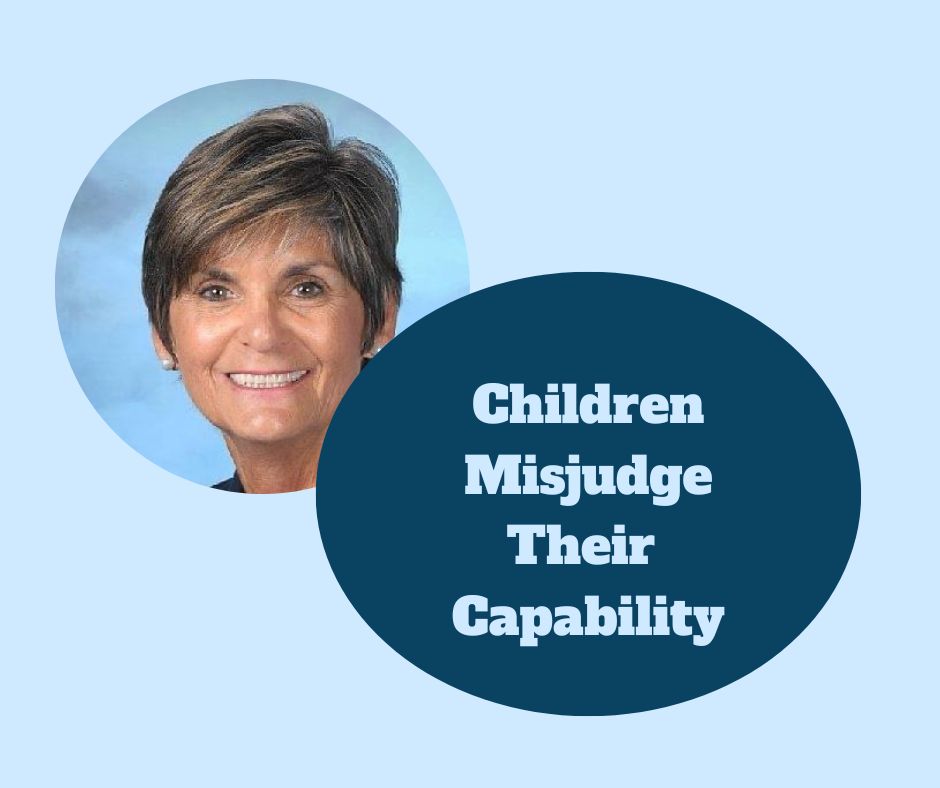After a few years of working with third graders I had an epiphany about the perceptions held by underachieving students who lacked confidence, or students who demonstrated negative behaviors. I was discovering an alarming number of students with poor self-images who were very capable students. As the demands on kindergarteners shifted from developmental learning to a more academic focus, children began forming incorrect self-images about their own intellectual abilities.
I had many students who show great aptitude, but would shut down when they faced challenges. While working with a 4’9″ third grade boy, I was possessed to ask the question, “When did you get the impression you weren’t smart?”
His answer blew my mind. He replied, “I knew I wasn’t smart in kindergarten.” His reasoning was that he couldn’t write as neatly as Alyson. He was embarrassed by his work, because the teacher posted all the work on the board in alphabetical order, and his name came just before hers. Hers was letter perfect, like an artist. “I couldn’t write that neat and I hated having my work on the board.” (I learned from this and in the future asked permission to post student work before putting it on the board. They had permission to decline and keep their work personal).
Another student said he knew he wasn’t smart in Preschool. He came to this conclusion because he couldn’t write his name on the paper like everyone else in the class. They had over anxious parents who taught them how to write the alphabet, their names, and numbers. But this young man’s parents felt it was best to allow the teacher to do the teaching, so he wouldn’t be bored, but it backfired and the lack of this shared knowledge made him feel less than the other children. Ironically, his IQ was off the charts.
A fourth grader shared that she knew she wasn’t smart because she couldn’t complete her timed math tests like the other children in class. Others have shared that they felt dumb when classmates knew answers to questions the teachers would ask, and they had no clue what the teacher was even talking about.
Everyone of these students were very bright capable students who suffered from feelings of “less than” for years before they became I began working with them.
A sign of intelligence is the ability to make comparisons and she see contrasts. Children who form such opinions of themselves are demonstrating a higher level of thinking ability. These students were not aware that their ability to see differences between them and their peers actually demonstrated how smart they were, not the opposite.
The ironic thing is “Dumb people don’t know they are dumb. They are happy in their little worlds, because they don’t see how they are different from others, and they don’t appear to care.” When I shared this with my students, I could see the stress lift from their shoulders.
Every year I would ask my students to share what they thought their weaknesses and strengths were in each aspect of school, including social life.
So many of my students saw their weaknesses as indicators of their intellectual ability. Many formed negative self-images at young ages because they received instruction before their brains were ready to process the information. Others received instruction in ways that were not compatible with their learning styles.
I was surprised at the number of students who formed negative attitudes about their intelligence based on the responses of classmates, who appeared to understand concepts they had never seen. They were not aware that different teachers cover topics that other teachers don’t. They don’t realize that when they went to the restroom or were absent the year before they could have missed what the teacher was talking about this year.
I encourage all parents and teachers to touch base with students to see when and why they formed negative impressions about their own capabilities.
Remind them about the following:
- Not all teachers cover the same material each year, so it’s possible that some students will know what others don’t.
- Teachers don’t go on pause when students are not in the room. It is up to them to find out what they missed whenever they are not in the classroom.
- The brain prunes previously learned information if it is not reviewed over a period of time. Not all access is lost, it just takes longer for the brain to find it. So students need to review work from the previous year or be patient when trying to recall it.
- Everyone’s brain develops at different rates. What is hard one day, may become easy a month later, so reviewing concepts regularly is important. Some boys tend to develop their fine motor skills later than girls. Girls may be able to write neatly, while boys may struggle until they gain the fine motor control needed. It is not a sign of intelligence, but a sign of physical development.
Once children recognize they have formed inaccurate opinions about they intelligence, and learn how to compensate for their weaknesses, they will soar higher than anyone could imagine,
